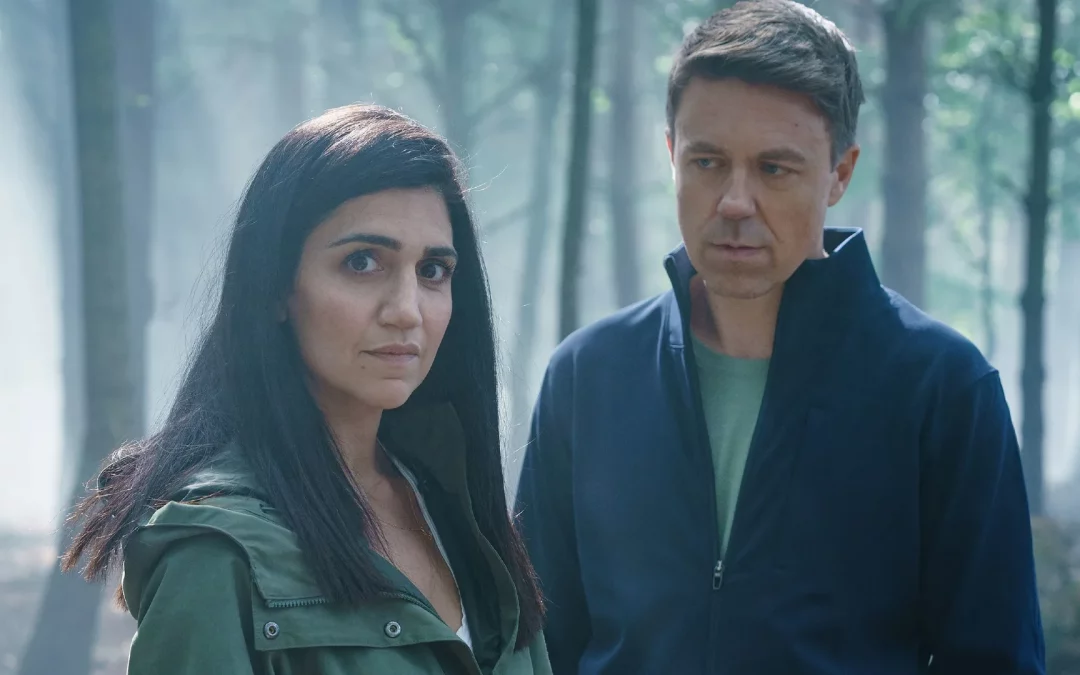Leila Farzad and Andrew Buchan play corrupt copper and remorseful gangster in Better, a pallid but intriguing drama.
By the end of Better, the BBC’s crime slow burner, you’re thinking: never mind the story, feel the heat.
The two protagonists – Lou Slack and Col McHugh – were all melancholy chafing and hangdog longing. In the Yorkshire woods, where they met in secret, they created a little slice of Wuthering Heights, such was the dam-burst levels of their drooling.
But hands off!
- 7 ways to create a buzz about your brilliant book
- The Good Wife: A decade on and still the most watchable show on TV
Both were married, not unhappily. Their passion was unconsummated. Slack said her love for McHugh was of the sibling kind but the fact that McHugh was as loose-limbed and moody as a moonstruck teenager suggested he was more afflicted by the condition.
For better or worse
These were star-crossed platonic lovers. The twist being they reached out to each other across a legal divide. She was a corrupt detective inspector who had been covering up his antics for 20 years. He was a murderous drug dealing gangster who had profited nicely from her protection.
They were very watchable, the pair of them, and this heavy-lidded non-affair dominated the Leeds-set story, for better or worse.
And if that wasn’t enough, their unspoken longing was given a turbo boost when, half-way through the show’s run, it was rumoured that in real life the actors (Leila Farzad and Andrew Buchan) had hooked up.
So that accounted for the languid looks and the awkward fawning in the forest. And the absence of jeopardy when the detective inspector decided she would turn on her longstanding partner-in-crime.
Her son was dangerously ill, so she did a deal with God at his bedside. She would be better.
Better late than never
The betrayal should have stung. The temple should have crashed round their ears. But such was the extent of their self-obsessed, see-no-evil hormonal absorption, the spark of danger just fizzled out in a damp forest setting.
What was missing, throughout, was sense of a moral scrape. They both did alright for themselves (on the back of nameless and endless victims), and their guiltless lives were comfortable and banal while simultaneously bathed in blood.
A lack of histrionics is always welcome in drama, but here it played like apathy, despite committed performances by both leads.
Better safe than sorry
Slack had spent her entire, lauded career, working for the opposition, working against her colleagues and her calling. This appears not to have troubled her conscience much, despite her mordant scowling.
When she spilled the fact to a greenstick colleague, it was the colleagues who felt the weight of it.
Slack’s hubbie Ceri (Samuel Edward-Cook), was an equally ineffective counterweight. Yes, he was angry she was risking her family. But, after making sporadic stands, he relinquished the fight in favour of a nice pasta supper in their McHugh-funded slick Slack uber kitchen.
Better the devil
Mooning McHugh, meanwhile, delegated all the wet work except the drainage in the rain-sodden garden.
It was all ever-so comfortable and inconsequential. Not a moral maze but a Roman road.
In the end, there was no particular epiphany, no dark night of the soul from which they emerged transformed. It appeared as if Slack and McHugh just got a little bit fed up and turned themselves in, somehow translating their vertiginous fall into another smug expression of their ersatz coupledom.
Out and proud together, like teenagers who had been hauled back home after bunking school and legging it to Blackpool.
Hey, get a cell, you guys!

